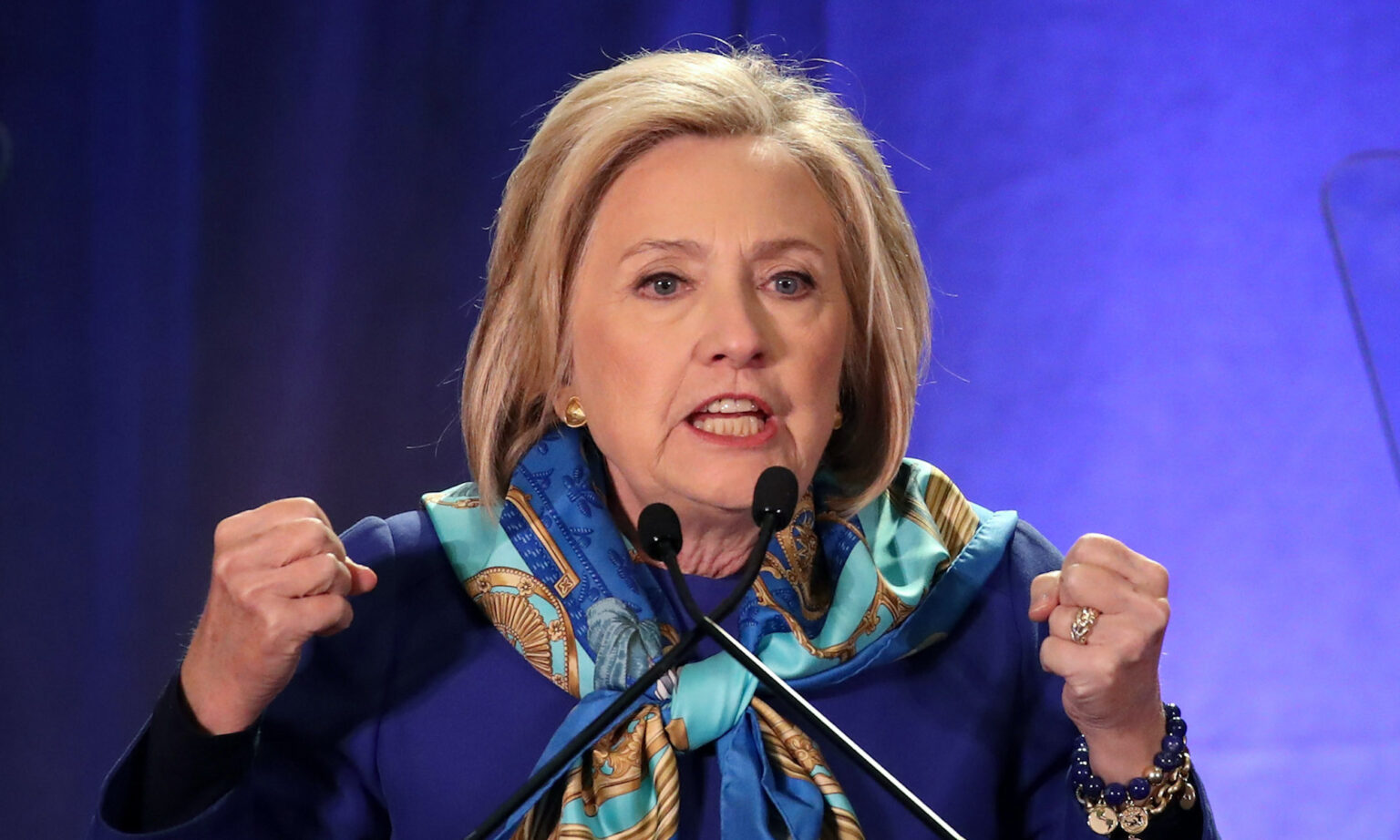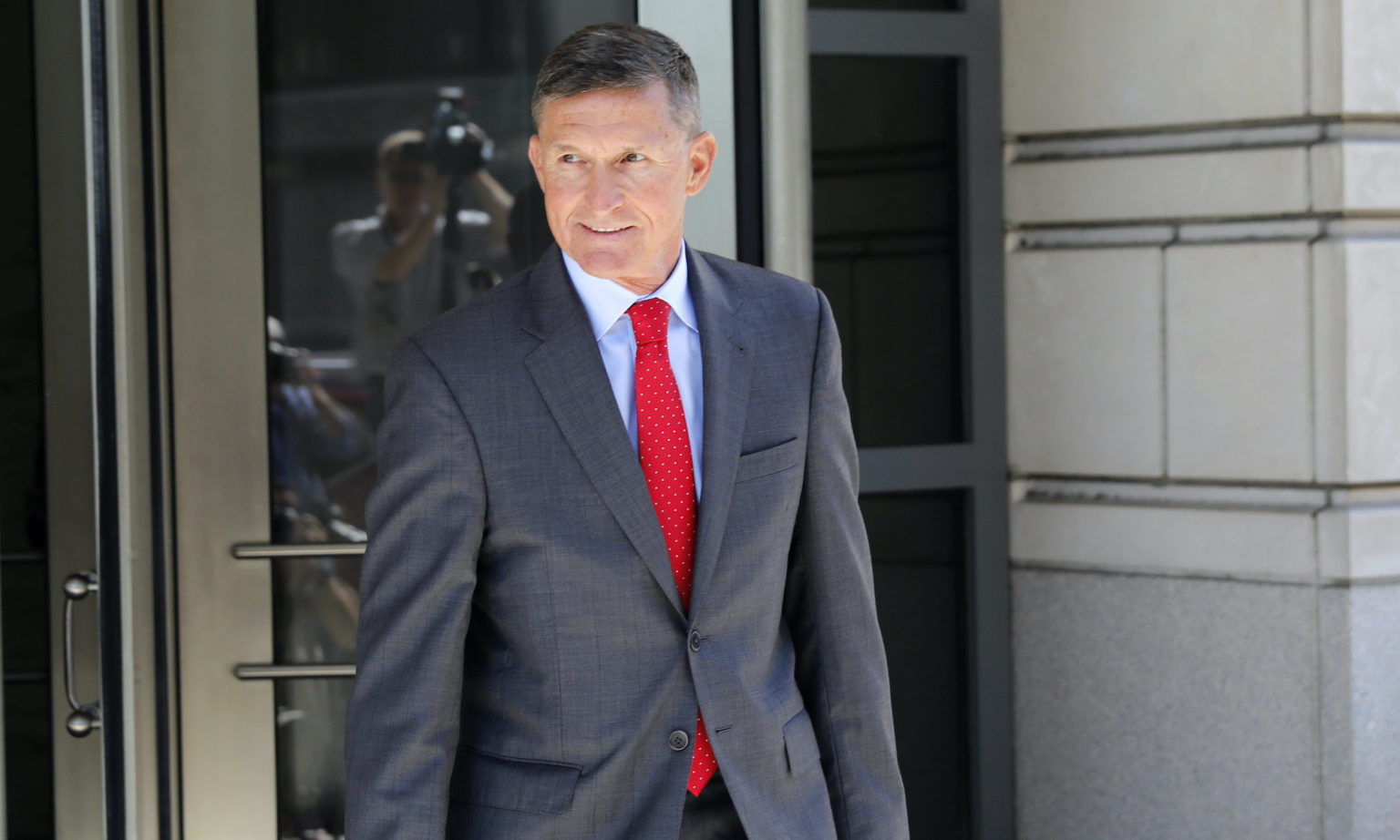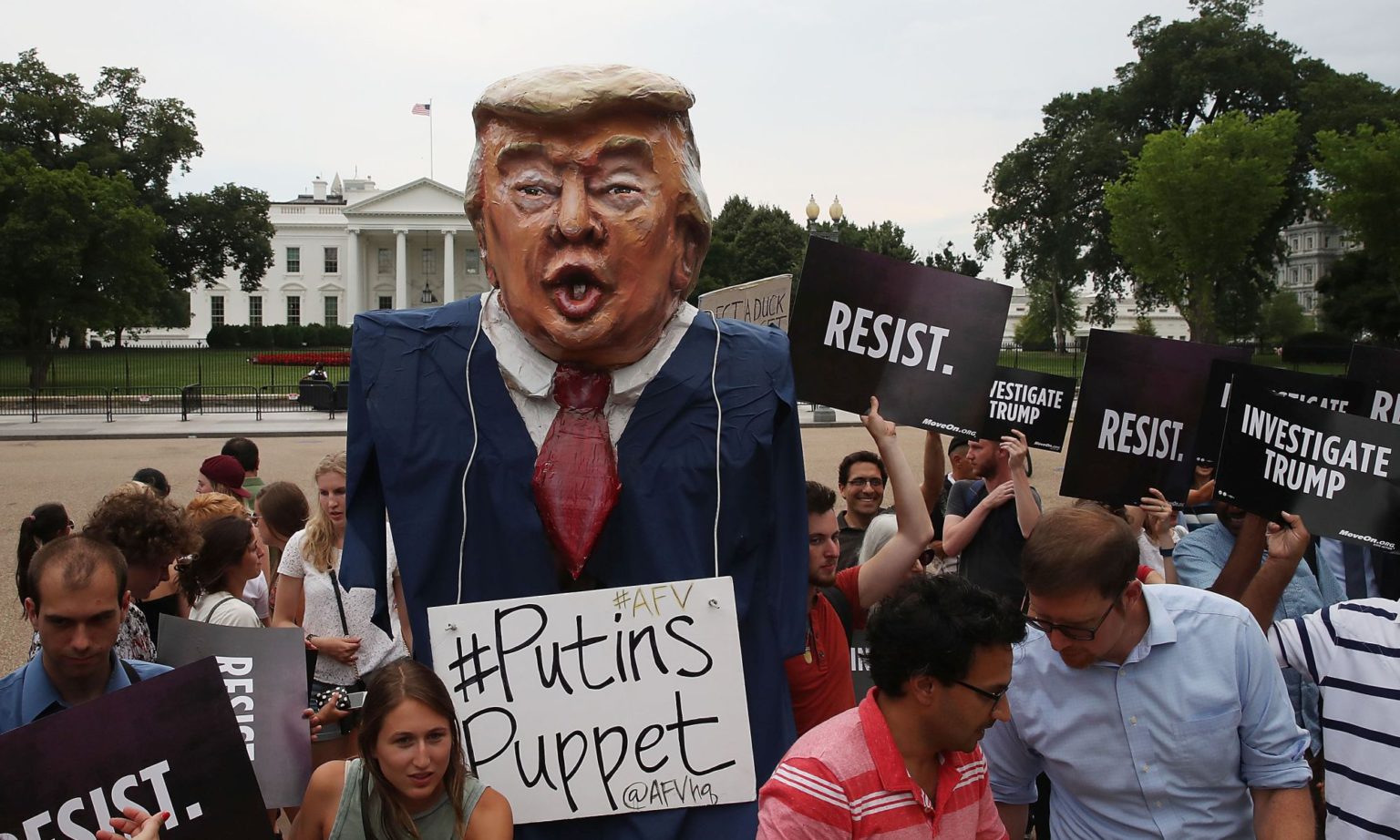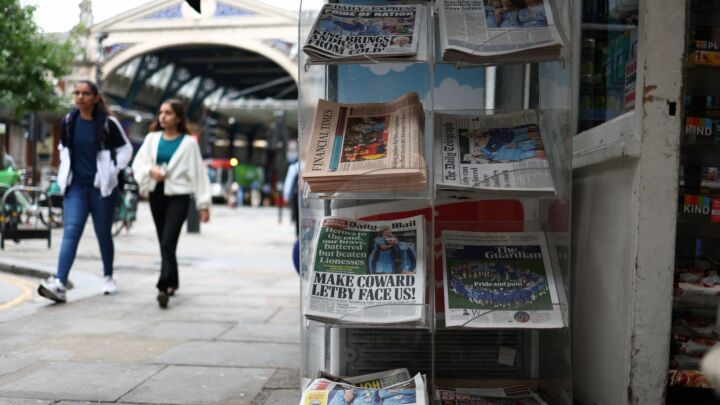
Long-read
The Democrats’ ‘acceptable’ election denial
The liberal elite’s refusal to accept Trump's 2016 victory did terrible damage to American democracy.
Want to read spiked ad-free? Become a spiked supporter.
A healthy democratic culture depends on all parties accepting the legitimacy of elections. This holds especially true for those on the wrong end of an election result. Losing parties have to be willing to consent to their loss. They might not like a given result, but they must accept the legitimacy of the democratic means through which it was achieved. When the losers start to withdraw their consent, when they challenge the legitimacy of a particular vote, they don’t just undermine that particular election – they also undermine public trust in democracy itself.
The withdrawal of losers’ consent is now a growing problem in American politics. According to the right-thinking classes, there’s only one side to blame – Donald Trump and his allies. In the words of one Atlantic pundit, MAGA types ‘seeded election denialism after Trump lost his bid for the presidency in 2020’. As New York magazine has it, there is ‘zero doubt’ Trump will dispute the result again should he lose the presidential election on Tuesday. Indeed, the Guardian reckons that Trump has already laid the groundwork for an assault on the result’s legitimacy. There are apparently ‘dozens’ of pro-Trump local officials in place to certify, or reject, vote totals and a support base primed to suspect election-rigging.
There’s just one rather serious flaw in this ‘election denialism’ narrative. In foisting all the blame on Trump, it obscures an earlier and far more damaging act of election denial – namely, the Democrats’ claim that the 2016 election result was produced by Russian interference.
True, Democrats didn’t make wild allegations of electoral cheating, as Trump and Co did after 2020. There were no tall tales of North Koreans smuggling ballots into Maine or voting machines rigged by Venezuelan socialists. Their denial of the election didn’t lead to anything like that riot on Capitol Hill, carried out by a rag-tag mob sporting Trump wear and even antlers, in a half-baked attempt to stop the transition of power from Trump to Biden.
Nevertheless, the Democrats’ withdrawal of losers’ consent – the one now being effaced by the current media narrative – was actually far more damaging to America’s democratic culture than Trump’s madcap ‘Stop the Steal’ campaign. It involved large swathes of America’s political establishment, intelligence agencies and the corporate media in a concerted, years-long effort to delegitimise Trump’s 2016 election victory. A concerted, years-long effort, that is, to present the 2016 election result as the will not of US voters, but of Vladimir Putin, with Trump and his team cast as Moscow’s willing puppets.
This conspiracy theory – for that is what it was – was first seriously pushed by then Democratic nominee Hillary Clinton and her campaign team in the summer of 2016. At the time, Trump was coming under scrutiny for criticising America’s NATO allies for their low levels of defence spending and some off-hand comments praising Putin. He was being painted by his opponents as an autocrats’ fanboy. Then, in July, after alleged Russian hackers stole hundreds of thousands of embarrassing private emails sent between members of the Democratic National Committee (DNC), and passed them over to Wikileaks to publish, Clinton campaign manager Robby Mook told CNN and ABC that the hack and leak ‘was done by the Russians for the purpose of helping Donald Trump’. At this point, it was clear the die had been cast. Clinton’s campaign was presenting Trump as a Putin stooge.
According to notes declassified in 2020 of a briefing CIA director John Brennan gave President Barack Obama in the summer of 2016, Clinton was very keen on promoting the Russia-collusion conspiracy theory. Brennan told Obama that Clinton had approved ‘a proposal from one of her foreign-policy advisers to vilify Donald Trump by stirring up a scandal claiming interference by Russian security services’.
The infamous product of this attempt to ‘vilify’ Trump was the so-called Steele dossier. Commissioned by the DNC and the Clinton campaign in June, and compiled over several months by former British spy Christopher Steele, it made many sensational claims, including the allegation that Trump had been caught by the Russian secret services paying prostitutes in a Moscow hotel to urinate on a bed supposedly once used by the Obamas. The dossier wasn’t made public at the time and its outrageous tales of politically charged perversion, as Steele and his ‘source’ were later to admit, were completely uncorroborated. Yet, shockingly, that didn’t stop the Democrats from passing parts of the Steele dossier to the Federal Bureau of Investigation (FBI), which then used this ‘intelligence’ to justify an expanded probe into Team Trump’s relationship with the Kremlin.
Thus were the seeds sown for a gross act of election denial in the event of Trump’s victory. When he won against the odds in November 2016, Clinton immediately began the process of effectively withdrawing losers’ consent. She formally conceded defeat, of course, but she refused to accept the election’s legitimacy. According to reporters Jonathan Allen and Amie Parnes in Shattered: Inside Hillary Clinton’s Doomed Campaign, Clinton and her team decided within 24 hours of Trump’s win to ‘engineer the case that the election wasn’t entirely on the up-and-up… Already, Russian hacking was the centrepiece of the argument.’

From that moment on, one of the greatest acts of ‘election denial’ in American political history was underway. Large swathes of America’s political establishment, led by the Democratic Party, proceeded to cast Trump’s victory as the illegitimate product of Russian interference. In December 2016, House minority leader Nancy Pelosi and Adam Schiff, the high-ranking Democrat on the House Intelligence Committee, were already busy urging Congress to investigate Russia’s ‘hacking’ of the election. In January 2017, anticipating Team Trump’s outlandish allegations of vote rigging in 2020, Democratic members of the House of Representatives were questioning and objecting to the vote counts in states including Alabama, Florida, Michigan, Texas, Mississippi and the Carolinas. As Senator Dianne Feinstein told NBC at the time, she was firmly of the belief that Russia had ‘altered the outcome’ of the election.
Indeed, for almost the entirety of Trump’s presidency, Democratic higher-ups refused to fully consent to Clinton’s loss in 2016. They continued instead to peddle the Russia-collusion conspiracy theory, painting Trump as the beneficiary of the Kremlin’s hacking, disinformation and other shady activities – all of which were of indeterminate efficacy. As late as June 2019, ex-president Jimmy Carter continued to deny the legitimacy of the 2016 result, stating ‘[Trump] lost the election and he was put into office because the Russians interfered on his behalf’. As for Clinton herself, she remains in a state of denial. In a CBS interview in September 2019, she called Trump an ‘illegitimate president’ and suggested that ‘he knows’ that he stole the 2016 election.
What makes this party-political attempt to deny the legitimacy of Trump’s 2016 victory all the more shocking is the role played by America’s intelligence agencies. The FBI launched its original investigation into allegations of Russian interference in the summer of 2016 following the DNC email hack. It has since emerged that the then director of national intelligence, James Clapper, and then FBI director James Comey received a copy of the Steele dossier in September 2016. This piece of Democrat-commissioned conspiracy theory supercharged the FBI investigation. Officials used it to help win secret court orders to surveil members of Trump’s team suspected of working with Russia.
In other words, American intelligence agents began spying on Trump and his team in the autumn of 2016 at the behest of the Republicans’ rival for the presidency. And so for several months afterwards, the FBI surveilled and dug for dirt on two key Trump aides, Michael Flynn and Carter Page.
Flynn, in particular, proved particularly useful for those determined to imagine the Russian conspiracy theory into being. On 29 December 2016, FBI agents recorded Flynn, who was then a foreign-policy adviser to the president-elect, talking to Russian diplomat Sergey Kislyak. Flynn urged Russia not to overreact to Obama’s recently introduced sanctions against Moscow and avoid ‘escalating’ tensions. He also attempted to reassure Kislyak that Russia-US relations could improve under Trump. In so many ways, it was an unremarkable interaction, one that had been undertaken under the eyes of the White House transition team. But in the minds of those determined to construct the Russian-collusion narrative, it was an opportunity.
FBI agents brought Flynn in for questioning over technically violating the Logan Act of 1799, which prohibits private citizens from interfering in diplomatic relations between the US and a foreign power. In full knowledge of what Flynn had said to Kislyak, they managed to trick him into lying about whether the two had discussed sanctions. The FBI leaked the story about Flynn talking to a Russian official to the press, and Flynn’s contradictory accounts of the conversation earned him the sack in February 2017.

At about the same time as the FBI was using Flynn to fan the flames of the Russia-collusion conspiracy theory, America’s intelligence agencies published an inflammatory ‘Intelligence Community Assessment’ on Russian activities in January 2017. This asserted that Russia had indeed mounted an ‘influence campaign’ during the 2016 election, and most shockingly of all, that ‘Putin and the Russian government developed a clear preference for president-elect Trump’. The ICA was to be a key moment in the Democrats’ election-denial efforts. What had always been a party-political attack line was now being publicly backed by the state’s security apparatus. A conspiracy theory was now being officially sanctioned. That the ‘evidence’ for the ICA’s suggestion of collusion between Team Trump and Moscow amounted to little more than supposition, rumour and, of course, the very dodgy Steele dossier, didn’t seem to bother the intelligence agencies. They seemed determined to reinforce the narrative being eagerly peddled by the Democrats – that the 2016 election was not legitimate and that the losing side was right to effectively withhold its full consent.
The FBI probe into Trump seemed never-ending. Indeed, it effectively dragged on for two more years in the form of Robert Mueller’s special-counsel investigation into ‘Russian interference in the 2016 presidential election’. During the course of his search for evidence to back up the Russian-collusion narrative, he issued 2,800 subpoenas, 500 search warrants and interviewed 500 witnesses. By the time it had concluded in March 2019, Mueller had uncovered all sorts of malfeasance. But it was completely unrelated to the central question his investigation was meant to answer: did Russia help put Trump in the White House? As the US attorney general William Barr summed Mueller’s efforts up at their conclusion: ‘The investigation did not establish that members of the Trump campaign conspired or coordinated with the Russian government in its election-interference activities.’
Later verdicts have been far less circumspect. A report on the FBI’s Trump-Russia probe from justice department inspector general Michael Horowitz in 2019 found the FBI guilty of ‘serious performance errors’ and characterised the Steele dossier as ‘a joke’. In 2023, federal prosecutor John Durham concluded his four-year-long special-counsel review of ‘intelligence activities and investigations arising out of the 2016 presidential campaigns’. Its indictment of the FBI’s probe into Trump was even more damning than Horowitz’s. Durham showed that the FBI ‘willfully ignored’ any material information that didn’t support the Russia-Trump conspiracy theory, and that its efforts were driven less by evidence than an assumption of ‘nefarious intent’ on Trump’s part – an assumption that reality steadfastly refused to corroborate. As Peter Strzok, the Trump-hating FBI official leading the pre-Mueller investigation, was moved to admit in a text message sent in early 2017, ‘there’s no big there, there’. The whole years-long investigation into Russian election interference created a lot of sound and anti-Trump fury, but found nothing of any significance. It should never have been launched in the first place, Durham concluded.
Yet the very fact that first the FBI and then Mueller persisted in searching for the Trump-Russia smoking gun for the majority of Trump’s time in office was damaging enough in itself. These investigations inevitably cast a pall of suspicion over his presidency. Indeed, that almost seemed to be the point. Through a constant stream of leaked stories to the media, the investigations sustained the sense that the 2016 election was not on the ‘up-and-up’, and, above all, gave the impression that a watertight, evidence-packed case was slowly but surely being built against Trump.
And here we come to the role played by the corporate media in this shameless attempt at so-called election denial. Already opposed to Trump and his haphazard challenge to the elite political consensus, the media class was only too happy to propagate the Russiagate conspiracy theory. It confirmed the many journalists’ pre-existing bias. Indeed, as early as July 2016, anti-Trump journalists were already floating the emerging Democratic attack lines. Writing in the New York Times, Paul Krugman called Trump the ‘Siberian candidate’, and alluded to ‘something very strange and disturbing going on here’ behind the scenes – that ‘something’ being Russian influence. Likewise, Jeffrey Goldberg, the editor of the Atlantic, called Trump a ‘de facto agent’ of Putin.
After Clinton lost the election that November, the media focus on Russiagate intensified to the point of obsession. Journalists were aided in their delusion by the FBI and the Mueller investigations. From these two successive pursuits of Trump, the media received a constant stream of leaked stories and high-profile arrests that always pointed towards some larger conspiracy without ever quite revealing it. The likes of the New York Times, the Washington Post and the Brexit-loathing, similarly Russia-obsessed Guardian in the UK feasted on these leaks. There was the ‘unauthorised’ publication of the Steele dossier itself in January 2017. There was the Flynn-talks-to-Russian-diplomat story. There was the tale of Trump’s then campaign manager, Paul Manafort, allegedly having a secret confab with Wikileaks founder Julian Assange at the Ecuadorian embassy, presumably to line up the leaking of Hillary Clinton’s emails. There was Trump’s ex-lawyer Michael Cohen’s involvement in a deal to build a Trump Tower in Moscow…
On and on it went for over two years. Report after report proved very little, but still generated a constant whiff of Russian foul play. Print and broadcast media seemed to be singing from the same conspiratorial hymn sheet. MSNBC host Rachel Maddow responded to a US-Russia Helsinki summit in 2018 by declaring that Americans were now ‘coming to grips with a worst-case scenario that the US president is compromised by a hostile foreign power’. A few weeks later, the New York Times published a very long essay on Russia’s ‘attack’ on America, entitled ‘The plot to subvert an election’. And with the Mueller investigation still rumbling on in January 2019, the Washington Post stated that ‘If Trump isn’t actually a Russian agent, he is doing a pretty good imitation of one’.
American mainstream media were wilfully constructing a tale far taller than Trump’s 2020 claims that dead people had ‘voted’ and ‘millions of ballots’ had been doctored. It was a tale of Trump as a real-life Manchurian candidate, recruited by the KGB in the 1980s and activated in the 2010s. A tale of Russian-hooker blackmail tapes and countless secretive meetings with fixers, leakers and hackers. A tale of how Putin had ‘won’ Trump the US presidential election. If it sounds like demented fiction, that’s because it was.
Yet such was the loathing of Trump among America’s cultural elites, they didn’t mock the media for the jaw-dropping credulity and collective derangement of their reporting. They rewarded and celebrated them. In 2018, the staffs of both the Washington Post and the New York Times were awarded the Pulitzer Prize for their ‘relentlessly reported coverage in the public interest that dramatically furthered the nation’s understanding of Russian interference in the 2016 presidential election and its connections to the Trump campaign, the president-elect’s transition team and his eventual administration’. And it was all a heap of the proverbial.

Speaking to the Columbia Journalism Review in 2023, Gerard Baker, now an editor-at-large for the Wall Street Journal, condemned the media’s performance during the Trump-Russia saga. He described the journalism produced as ‘among the most disturbing, dishonest and tendentious I’ve ever seen’. Baker is arguably being too kind.
What we saw from 2016 onwards was a spectacular effort to delegitimise a presidential election. A years-long effort to justify withholding losers’ consent. We saw the Democratic party-political elite, feeding dubious information to an all-too-receptive FBI, set out to deny an election. And throughout it all, the press cheered them on, eagerly colluding with power, rather than even attempting to speak truth to it.
Through their efforts to deny the 2016 election, politicians, state agencies and the corporate media did enormous damage to their own reputations and to the institutions of democracy in which the citizens put their trust. Countless polls show that from the Russiagate scandal onwards, public trust in the media and the political system plummeted.
What’s more, this grand, elite attempt to delegitimise Trump’s presidency paved the way for the ‘election denial’ we saw among Trump and his supporters after the 2020 election. Their claim that the political system had been rigged against them – that the 2020 election had been ‘stolen’ – resonated precisely because the Democrats, much of the news media and the state itself had indeed been out to get Trump for the previous four years – and they had even concocted a crazy conspiracy theory to make it happen.
Today, America’s political and media elites continue to insist that election denialism ‘exploded only after election day in 2020, when Trump’s refusal of an orderly transition of power led to a violent assault on the Capitol’. This is a lie. The Russiagate conspiracy theory may have lacked the cartoonish drama of Trump’s ‘Stop the Steal’. But it did so much more damage. To the media, to the political system and above all to democracy itself.
If the withdrawal of losers’ consent remains a problem in 2024, America’s political and media elites should shoulder the majority of the blame.
Tim Black is a columnist at spiked.
Pictures by: Getty.
Celebrate 25 years of spiked!
A media ecosystem dominated by a handful of billionaire owners, bad actors spreading disinformation online and the rich and powerful trying to stop us publishing stories. But we have you on our side. help to fund our journalism and those who choose All-access digital enjoy exclusive extras:
- Unlimited articles in our app and ad-free reading on all devices
- Exclusive newsletter and far fewer asks for support
- Full access to the Guardian Feast app
If you can, please support us on a monthly basis and make a big impact in support of open, independent journalism. Thank you.








Comments
Want to join the conversation?
Only spiked supporters and patrons, who donate regularly to us, can comment on our articles.